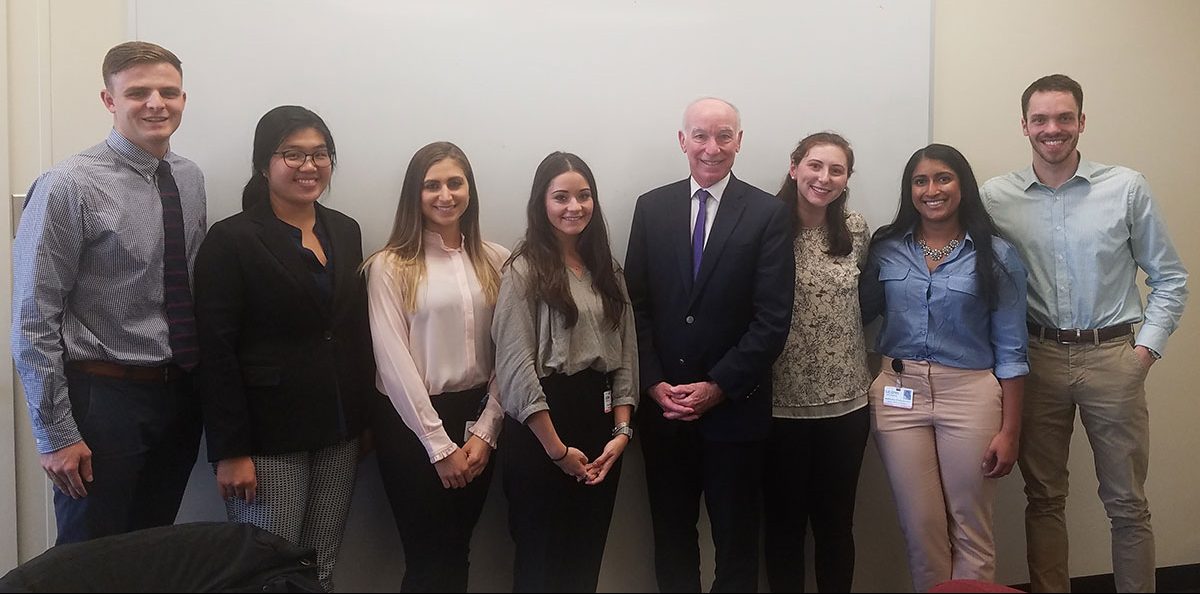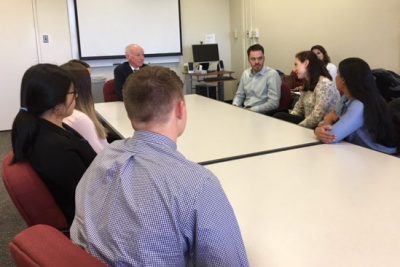Originally posted on – Christine Buckley – College of Liberal Arts and Sciences, and Kim Krieger – UConn Communications

Two UConn faculty members, Professor Nora Berrah of the Department of Physics in the College of Liberal Arts and Sciences, and Susan Reisine, professor emerita of the School of Dental Medicine at UConn Health, have been named 2018 Fellows of the American Association for the Advancement of Science (AAAS).
The 412 AAAS Fellows selected this year were chosen for their scientifically or socially distinguished efforts to advance science and its applications.
The AAAS, publisher of the journal Science, is the world’s largest general scientific society. New Fellows will be recognized during a ceremony at the society’s February 2019 annual meeting in Washington, D.C.
Berrah, who was head of the physics department from 2014-2018, has been recognized for her distinguished contributions to the field of molecular dynamics, particularly for pioneering non-linear science using X-ray lasers and spectroscopy using synchrotron light sources.
Using big lasers – like the Linac Coherent Light Source (LCLS) at SLAC National Laboratory on the campus of Stanford University, the most powerful X-ray laser in the world – Berrah’s research explores transformational changes occurring inside molecules when exposed to ultra-intense beams of light. In particular, they investigate physical molecular processes that occur at the femtosecond time scale: one quadrillionth, or one millionth of one billionth, of a second.
In some of her research, Berrah and her colleagues study thymine, a component of DNA that has an ultrafast self-protection mechanism to guard skin from sunburn. Using ultrafast table-top laser light, they excite the molecule and then probe its decay mechanism with femtosecond X-rays from the LCLS, allowing the team to measure directly the time scale of thymine’s natural sunscreen-like properties.
Berrah has also been a vocal proponent of women and underrepresented groups in physics, and in addition to her scientific talks is a frequent invited speaker at conferences on women in science around the world.
Berrah is a Fellow of the American Physical Society (APS) and the recipient of the APS’s 2014 Davisson-Germer Prize in Atomic or Surface Physics.

Dental Medicine at UConn Health. (Peter Morenus/UConn File Photo)
Reisine, the division chair of Behavioral Sciences and Community Health in the Department of Oral Health and Diagnostic Sciences from 2005 to 2014 and associate dean of research for the School of Dental Medicine from 2004 to 2014, has been recognized for her distinguished contributions to the field of psychosocial outcomes of oral disease, specifically on social functioning, quality of life and behavioral issues, and health disparities.
Her research into arthritis, fibromyalgia, and the social and psychological impacts of oral disease is unusually interdisciplinary, focusing on how these conditions affect the health of women and groups with limited access to dental care. She spearheaded the UConn Center for Interdisciplinary Research in Women’s Health, which was funded by the National Institutes of Health in 2000 and at the time was the only center of its kind in the nation at a dental school. The center trained nine scientists between 2000 and 2006 who went on to start their own independent research programs in women’s health.
Reisine’s current work looks at oral hygiene interventions with seniors in low-income housing. She and her collaborators are working with seniors who reside in Hartford, using motivational interviews to shed light on oral health-related quality of life.
Reisine is a past fellow of the Association of Rheumatology Health Professionals. She has been honored twice by the International Association for Dental Research, once in 2005 with the Distinguished Scientist Award and again in 2018 with the Distinguished Service Award. And UConn Health awarded her the Board of Directors Faculty Recognition Award in 2004 for outstanding academic and clinical accomplishments, and sustained excellence of the highest order in her professional endeavors.

